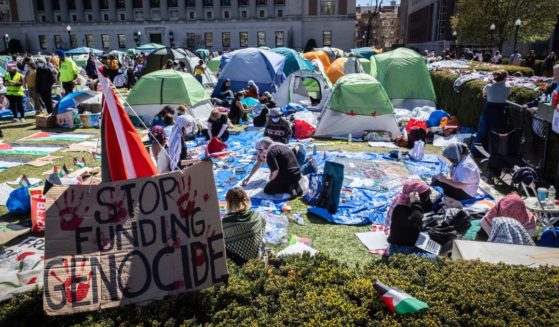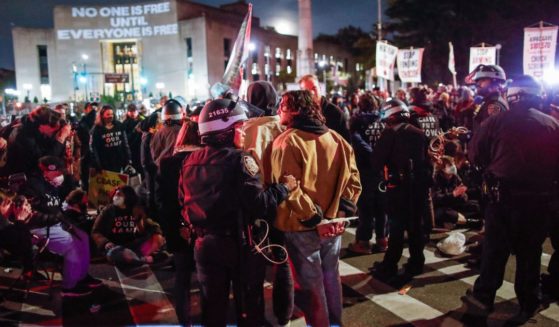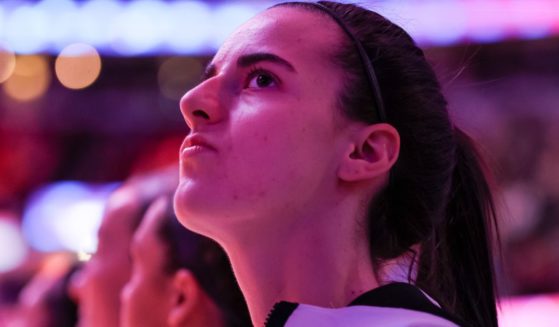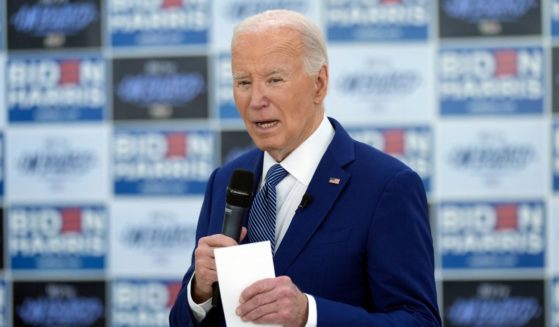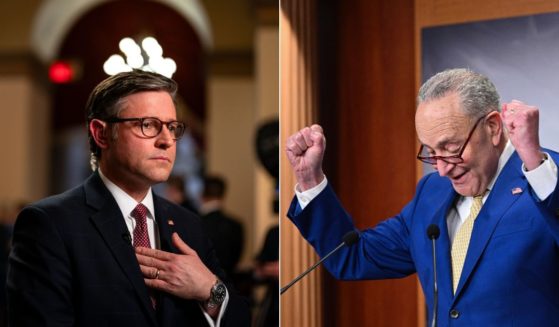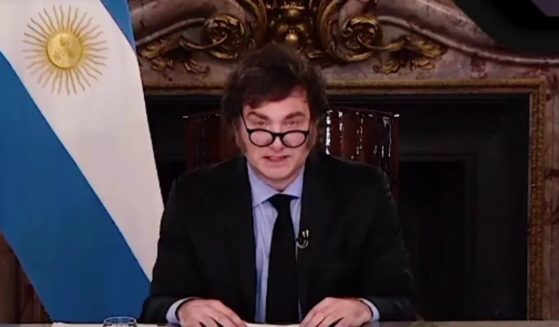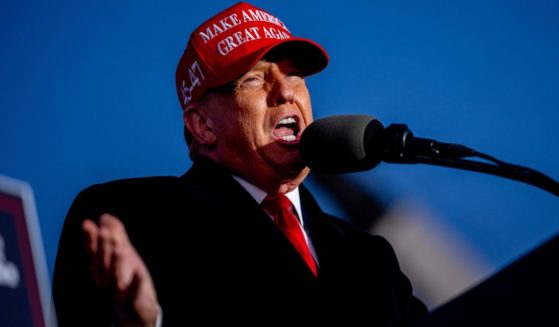Minneapolis City Council's $27 Million George Floyd Settlement Impacts Trial, New Jurors Must Now Be Found
On March 12, the city of Minneapolis reached a $27 million settlement with the family of George Floyd, the man who died in police custody last year after then-police Officer Derek Chauvin knelt on Floyd’s neck for almost nine minutes. The city council unanimously approved the decision, 13-0.
“After the eyes of the world rested on Minneapolis in its darkest hour, now the city can be a beacon of hope and light and change for cities across America and across the globe,” said Benjamin Crump, the noted civil rights lawyer who represented Floyd’s family in the case, according to The New York Times.
However, in a statement, Crump also pointed out why it could prolong the city’s darkest hour: It was, he pointed out, “the largest pre-trial settlement in a civil rights wrongful death case in U.S. history.”
Not only was it the largest pre-trial settlement ever reached in a wrongful death case, but it was announced as the jury was being selected in Chauvin’s trial on two murder charges and a count of manslaughter.
As KMSP-TV reported, the news conference announcing the settlement included Floyd’s family as well as Minneapolis Mayor Jacob Frey, the City Council president, Lisa Bender, its vice president, Andrea Jenkins, and prominent Councilman Jeremiah Ellison. (His father, Keith Ellison, is the state’s attorney general and is overseeing Chauvin’s prosecution, as The Washington Post noted.)
A settlement in a wrongful death suit isn’t an admission of guilt, but that nuance can easily get lost — as it apparently did for two of the individuals who had been seated for the jury in the Chauvin trial, both of whom were dismissed by the judge on Wednesday because they indicated the settlement could influence their judgment.
According to CBS News, Hennepin County Judge Peter Cahill, at the request of Chauvin’s attorneys, recalled for questioning the seven jurors who had been picked before the Floyd settlement was announced.
The judge remarked on the “extensive media coverage about developments in a civil suit between the city of Minneapolis and the family of George Floyd,” according to CBS, and asked jurors if they had been exposed to it and whether it would affect their ability to maintain impartiality. On the last count, lo and behold, two said it would.
“I think it will be hard to be impartial,” said the first dismissed juror, a white man in his 30s who had heard about the settlement, CBS reported.
The second juror, a Hispanic man in his 20s, said the “sticker price obviously shocked me.” CBS News reported that the man “said he thought he could set the news aside, but wasn’t sure, and after a long pause, Cahill dismissed him.”
Nine jurors in total had been picked for the trial at the time, two of whom were chosen after the settlement had been announced. By Friday, 13 had been chosen, according to CBS News. A total of 12 jurors and two alternates are needed.
The judge denied a request to delay or move the trial, calling the timing of the settlement “unfortunate” but saying it wouldn’t affect pretrial publicity.
Apparently, Cahill believes that every week or two, the Minneapolis City Council is going to be doling out $27 million settlements to Floyd’s family and holding widely covered news conferences about it with the mayor and Floyd’s family. (Cahill’s reasoning for not moving the trial out of Minneapolis — that there isn’t a place in Minnesota that remains untouched by the mania concerning the case — is coming from a place of sounder judgment.)
Now, mind you, a delay would ordinarily be a terrible idea.
Nationally, Chauvin’s trial likely represents the most racially fraught case since the O.J. Simpson circus. Locally, tensions are even higher. Minneapolis has had to plan accordingly.
According to The Washington Post, the city has expended $1 million on security, with barbed wire, fences and concrete barriers protecting the courthouse and other public buildings. The National Guard has been deployed and city officials are urging businesses to consider protection from damages “such as boarding or permanent security gates.”
This is understandable, considering an acquittal in the case would likely result in a conflagration much like we saw in Minneapolis last summer after Floyd’s death. (There’s nothing to indicate we won’t see said conflagration if he’s found guilty, either.) Community activists, meanwhile, are using the moment to blame the city for daring to secure the city using police.
The aforementioned Jeremiah Ellison said that the rioting in the city “[t]his past summer, that was created, in large part, by the police,” according to The Post. “And now, we’re saying that the police are the only thing that can protect us from that. And I think it’s incredibly disappointing.”
So, yes, a delay would be terrible for both the country and Minneapolis. And yet, despite all that, Minneapolis’ own catastrophic thoughtlessness, incompetence and cowardice have put us in a position where the only correct decision is a delay.
Two jurors admitted the settlement would at least potentially affect their judgment. The fact there were any at all should have been the striking factor; most of us would like to tell ourselves we could be impartial in a jury box in the face of information like this, even though this could be the wildest of lies.
These two men survived voir dire, got picked, heard about the settlement and then felt their impartiality had been compromised. Are we to believe that none of the others that were recalled for questioning by Judge Cahill weren’t telling themselves the pleasant fib that upstanding, righteous them couldn’t be affected by “the largest pre-trial settlement in a civil rights wrongful death case in U.S. history?”
The family of George Floyd may well deserve $27 million, no matter whether Chauvin is found guilty or acquitted. This argument isn’t about the size of the settlement or the rectitude of the decision to award them that sum. That’s a different issue.
It’s all about the timing.
The leaders of the city of Minneapolis have bungled so many things regarding the death of George Floyd and its aftermath that cataloguing each one briefly even in 6-point font would yield a document, I would estimate, roughly the size of a phone book for a mid-sized city. After all this, they lacked the foresight and/or courage to delay any settlement — or at least its announcement — until after an imminent trial to avoid prejudicing the jury. They’ve learned nothing.
Derek Chauvin is an American citizen who deserves, as do we all, a fair trial. I’m under no illusions that would be easy under any circumstances, but I cannot imagine what Minneapolis officials thought they stood to gain by deliberately making that harder.
For a fair trial to happen, there needs to be some delay between the calamitous decision to announce this settlement in the middle of jury selection and an actual trial, no matter how much pain it prolongs. Nice work, Minneapolis.
Truth and Accuracy
We are committed to truth and accuracy in all of our journalism. Read our editorial standards.


